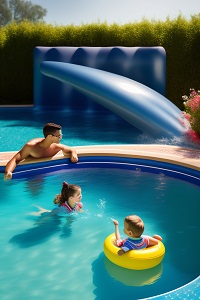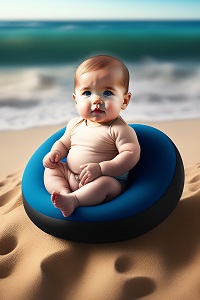Taking baby to pool for first time
Swimming is a great way for babies to cool off in the summer, get exercise, and have fun. It can also help them develop important water safety skills. If you’re thinking about teaching your baby to swim, here are a few things to keep in mind.
When to start
The American Academy of Pediatrics (AAP) recommends waiting until your baby is at least six months old before starting swimming lessons. This is because babies’ bodies are still developing, and they are more susceptible to colds and other infections. Additionally, babies under six months old may not have the necessary head control and coordination to swim safely.
If you want to introduce your baby to water before they are six months old, you can do so in a safe and controlled environment, such as your bathtub or a shallow pool. Be sure to supervise your baby closely at all times and never leave them unattended in the water.
What to teach

The first step in teaching your baby to swim is to get them comfortable in the water. This means playing with them in the bathtub or pool, splashing them with water, and letting them explore the water on their own. Once your baby is comfortable in the water, you can start teaching them basic water safety skills, such as how to float on their back and how to hold their breath underwater.
Precautions to take

When teaching your baby to swim, there are a few important precautions to take:
- Always supervise your baby closely in the water.
- Never leave your baby unattended in the water.
- Use a properly fitting life jacket or floatation device.
- Teach your baby to swim in a safe and controlled environment.
- Avoid taking your baby swimming in large, public pools.
- Be aware of the risks of cold water exposure.
With proper supervision and precautions, you can help your baby learn to swim and have fun in the water.
Here are some additional tips for teaching your baby to swim:

- Make it fun! Swimming should be a positive experience for your baby.
- Use positive reinforcement. When your baby does something correctly, praise them and give them a reward.
- Be patient. It takes time for babies to learn to swim.
- Don’t force it. If your baby is not having fun, take a break and try again later.
With patience and consistency, you can help your baby learn to swim and enjoy the water for years to come.

